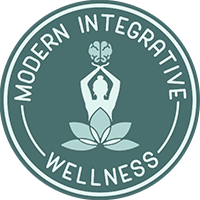- 245 5th Ave, 3rd Floor, New York, NY 10016
Sleep Disorders
Sleep Disorders in New York, NY
Sleep disorders are disturbances in sleep patterns. They involve difficulty falling asleep or staying asleep, excessive daytime tiredness, irregular breathing during sleep, or abnormal sleep behaviors. Sleep disorders may develop as a result of changes in the neurotransmitters of the brain, taking certain medications (such as corticosteroids), illness, stress, anxiety, depression, excessive caffeine or alcohol, or drug use. A sleep disorder can interfere with daily activities, and affect overall health and quality of life. When accurately diagnosed, however, most sleep disorders can be effectively treated.
Types of Sleep Disorders
Sleep disorders, depending on their symptoms, are divided into two categories that may require differing treatments.
Dyssomnias
Dyssomnias result in difficulty falling asleep or staying asleep, and are characterized by excessive sleepiness and disturbances in the amount or quality of sleep. Common dyssomnias include:
- Insomnia
- Snoring
- Sleep apnea (pauses in breathing during sleep)
- Narcolepsy (brief attacks of deep sleep)
Dyssomnias often result in fatigue or mental confusion during the day.
Parasomnias
Parasomnias, on the other hand, involve abnormal movements, behaviors or emotional outbursts. These may include:
- Sleepwalking
- Nightmares
- Restless legs syndrome
- REM sleep behavior disorder
- Sleep aggression
- Sleep-related eating disorder
- Sexsomnia (sexual activity while asleep)
- Bruxism (tooth grinding)
- Enuresis (bedwetting)
Although patients with parasomnias may appear agitated or distressed during sleep, these disorders are no longer necessarily considered evidence of psychiatric disturbance. Instead, they are understood as abnormal neurological transitions between REM sleep, non-REM sleep, and wakefulness.
Diagnosis of Sleep Disorders
In order to diagnose a sleep disorder, doctors typically perform a full physical examination and may take blood tests to rule out underlying disease conditions. The patient is then admitted to a sleep clinic where various bodily functions, including respiration, brain waves, eye movements and heartbeat are measured and recorded.
Treatment of Sleep Disorders
Based on causes and symptoms, there are different options available for treatment of sleep disorders. Some sleep disorders respond well to simple remedies, such as:
- Following a consistent bedtime routine
- Exercising regularly
- Avoiding caffeine, nicotine and excessive alcohol
- Keeping the bedroom at a cool temperature
- Limiting bedroom activities to sex and sleep
Relaxation techniques, cognitive behavioral therapy or light therapy may be helpful for some patients. Other possible treatments for sleep disorders include medications such as benzodiazepines (anti-anxiety medications) and anti-convulsants. In some situations, support groups for individuals with sleep disorders may also be of assistance.
Additional Resources
- Adult ADHD
- Bipolar Disorder
- Body Dysmorphic Disorder
- Chronic Fatigue Syndrome
- Cognitive Behavioral Therapy
- Depression
- Dissociative Disorders
- Generalized Anxiety Disorder
- Insomnia
- Obsessive Compulsive Disorder
- Panic Disorder
- Personality Disorders
- Phobias
- Post-Traumatic Stress Disorder
- Postpartum Depression
- Seasonal Affective Disorder
- Self-Injury
- Sleep Disorders
- Social Anxiety Disorder
- Stress Management






Hear From Our Client Testimonials
Real People, Real Testimonials.

